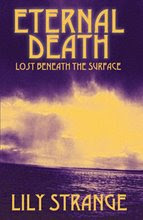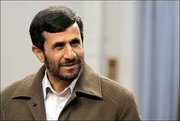
Today, a doctor reflects on death and the machinery of sustaining life. The University of Houston's College of Engineering presents this series about the machines that make our civilization run, and the people whose ingenuity created them.
Sherwin Nuland's book, How We Die, sat on my desk for a year. Now I've finally read it and it was a jolt. Nuland takes on the most forbidden topic of all. Society lets us talk about politics and sex as long as we're careful. But talk of death remains taboo.
Nuland is a surgeon and medical historian. His book deals with a primary dilemma. To be a doctor is to fight death. Yet death always wins in the end. Doctors, armed with spectacular new technologies, engage in a combat they cannot ultimately win. It is a situation that becomes more paradoxical all the time.
Nuland begins by explaining death itself. And it isn't pretty. Death is invariably caused by a lack of oxygen brought on by a hundred different scenarios of system failure. It is seldom a matter of passing gently over the Great Divide. In a harrowing sequence of chapters he explains how our bodies fail in heart disease, cancer, AIDS, Alzheimer's disease, and more.
For those of us old enough to know our time's limited, Nuland's book is frightening at first. But it grows reassuring as he demystifies death. He takes it out of that place where things go bump in the night. He puts it where it can be seen and understood.
He also deals with another seldom-discussed aspect of death. It is that the old usually reach a point where they accept it.
Nuland quotes Jefferson who, at 71, wrote to John Adams, then 78.
Our machines have been running seventy or eighty years and we must expect ... here a pivot, there a wheel, now a pinion, next a spring will be giving way; ...
There is a ripeness of time for death ... when it is reasonable we should drop off and make room for another growth.
But Nuland's main concern is with doctors and their machines, their compulsion to win the unwinable fight with death, their frequent inability to talk candidly with patients. He tells of the reflex need to fight for a patient's life long after there's any profit in it for the patient. He tells how he cheated his own brother of the chance to deal with his death by cancer. He offered empty hope instead of joining him in grieving the inevitable end.
In the poignant apogee of this remarkable book, Nuland quotes the hopeless words doctors tell each other when they fail to level with a patient: "I could not take away his hope." Then he adds,
Unless [we're] aware [we're] dying and ... know the conditions of our death, we [can't] share any sort of final consummation with those who love us. Without this consummation, no matter their presence at the hour of passing, we will remain unattended and isolated.
Others have certainly raised questions about the technologies of preserving life. But Nuland, coming from the very center of those technologies, tells us what every technologist in every field should understand. It is that we cannot let the objective purpose of our machines become ends in themselves. The true purpose of any machine can only be shaped by the people it is meant to serve.
I'm John Lienhard, at the University of Houston, where we're interested in the way inventive minds work.
Nuland, S., How We Die: Reflections on Life's Final Chapter. New York: Alfred A. Knopf, 1994.
Chapter 1 Summary
In Chapter 1, "A Strangled Heart," Dr. Nuland relates his personal experience of an individual he chooses to call James McCarty. As noted in the Author's Note before Chapter 1, all but one name was changed in the stories the author will share. Dr. Nuland was in his third year of medical school and working an evening shift at a university hospital. Mr. McCarty had been admitted to the hospital after he experienced pressure in his chest and left side. James McCarty was the picture of an overweight workaholic who gave every indication of enjoying the good life in excess. He was admitted after experiencing severe pains and pressure in his chest and left side. His condition was evaluated as "recovering" and he was moved to a room for observation. Medical student Nuland.....
Read the rest of this Literature Guide with our How We Die, Reflections on Life's Final Chapter Access Pass.
more chapters here



























4 comments:
very interesting... I've read several books on death but this one seems different...
I have read it, and I am not in a tearing hurry to go although; it could strike at anytime, I shall continue as if it will never be.
Today is the tomorrow you worried about yesterday and all is well.
Sign up now for your after death communications hotline.
Ghoul@coffinsdeadspot.com
Ignoramus bought this book after reading your blog and thanks you. he is reading it slowly, good book; hopes to read 'how we live' too.
Post a Comment